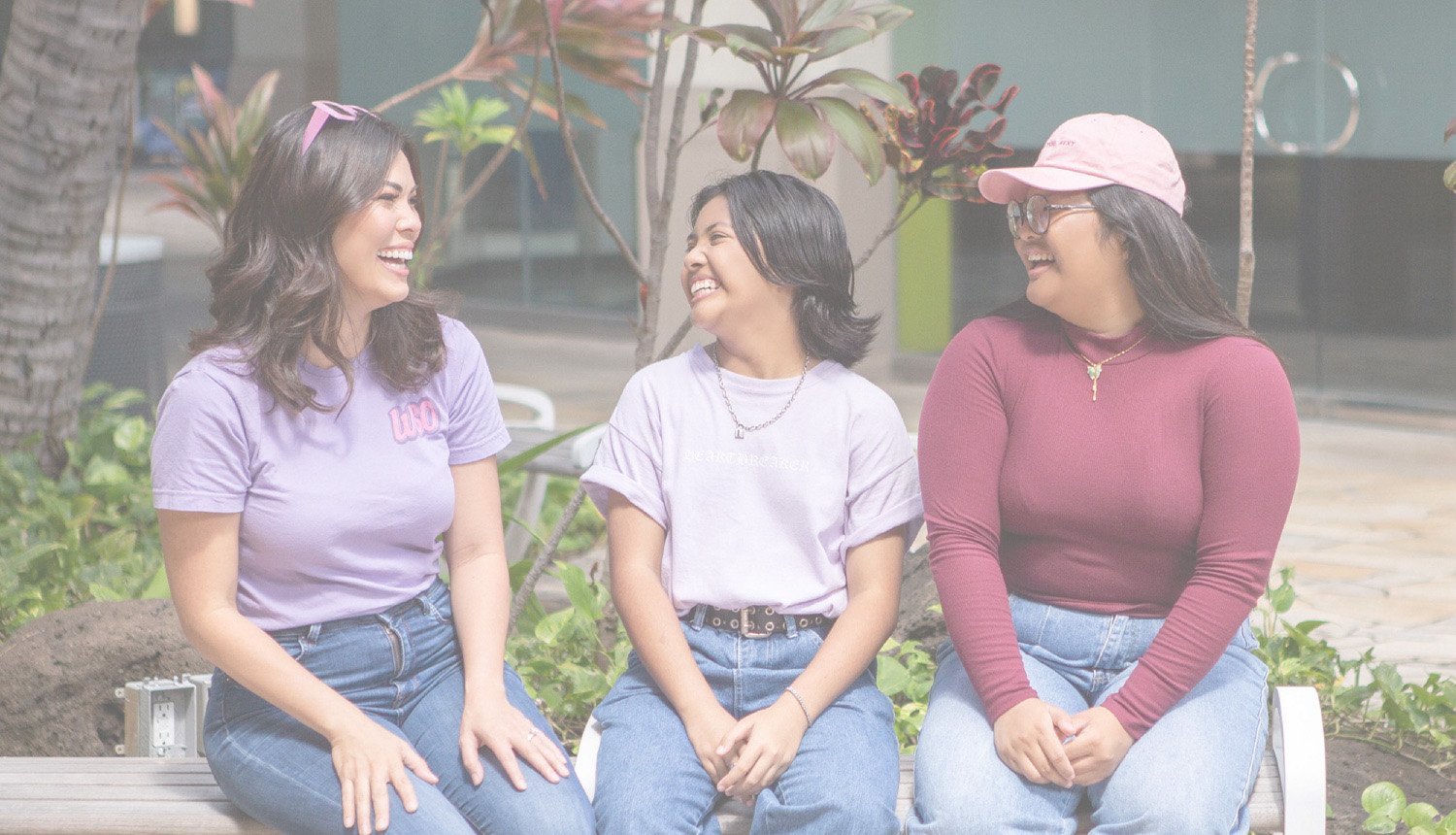
WE BELIEVE
THE FUTURE IS BRIGHT
SERVING COMMUNITIES
Founded in 2008, WSO has consistently launched innovative events and workshops to maintain its community presence and strengthen its commitment to raising awareness about dating violence.
15+ YEARS
OVER $250,000
RAISED FOR PROGRAMS IN HAWAII
WSO has raised over $250,000 to help fund our student focused workshops including the Future is Bright Educational Series and student lead Speak Out Squad!
OVER 5,000+
WOMEN & STUDENTS IMPACTED
WSO has built a sisterhood of young women—survivors, educators, students, advocates, and female business leaders—united by their commitment to creating positive change and empowering women.
DV (DATING VIOLENCE) IS A PATTERN OF CONTROLLING BEHAVIORS THAT ONE PARTNER USES TO GET POWER OVER THE OTHER. INCLUDING: PHYSICAL VIOLENCE, THREAT OF PHYSICAL VIOLENCE, OR FINANCIAL, EMOTIONAL, MENTAL AND SEXUAL ABUSE.
WHAT IS DATING VIOLENCE?
BEING A VICTIM OF DATING VIOLENCE IS NOT YOUR FAULT. NOTHING YOU DO OR SAY GIVES ANYONE THE RIGHT TO HURT YOU.
GET HELP
OUR PROGRAMS
AWARENESS
WSO SPEARHEADS STATEWIDE AWARENESS CAMPAIGNS TO PREVENT AND COMBAT DATING VIOLENCE!
EDUCATION
WE PROVIDE PEER TRAINING PROGRAMS FOR STUDENTS FROM MIDDLE SCHOOL THROUGH COLLEGE, EQUIPPING THEM WITH THE KNOWLEDGE AND SKILLS TO FOSTER HEALTHY RELATIONSHIPS!
EVENTS
WE ORGANIZE EDUCATIONAL AND INSPIRING EVENTS THAT UNITE WOMEN, OFFERING A SAFE PLATFORM TO SHARE THEIR STORIES AND VOICES!
GIRLS COURT PARTNERSHIP
The Girls Court Empowerment Program offers a safe space for vulnerable young women in Hawaii to build emotional and physical health, and self-confidence. Through workshops and mentorship from community leaders, participants explore topics like healthy relationships, self-defense, and entrepreneurship, empowering them to reach their full potential.
STUDENTS SPEAKING OUT
The "Future is Bright" Education Series equips students with vital life skills in Communication, Goals, Relationships, and Self-Love. Interactive workshops cover financial literacy, resume writing, and job interview prep. The program includes mentorship, community service, and a $10,000 scholarship fund, preparing students for life beyond.
SELF-DEFENSE CLASSES
Empowering women of all ages, our self-defense classes teach essential skills for personal safety. Community sessions are held in April and October, with private classes available by donation.
SPEAK UP WORKSHOP
The quarterly Speak Up Workshop supports women aged 18 and up who have experienced dating violence. It provides resources, connection, and a safe space to heal and grow.
FUTURE IS BRIGHT SCHOLARSHIP RECIPIENTS
-

CZARINA GALLANO
FARRINGTON HIGH SCHOOL
Before being a part of Women Speaking Out, I didn't know much about dating violence and self-love. As a student ambassador it has inspired me to use my knowledge to help others. With the nonprofit, I've grown to be a voice for others in my community. I aspire to pass the knowledge down to others. As a young woman who grew up in a low income neighborhood, I've seen how dating violence has a life-long impact on people. Women Speaking Out creates change for the future and we are the ones that must take action!
-

ISSAC LIU
FARRINGTON HIGH SCHOOL
Women Speaking Out has taught me the importance of trust, communication, and community. Through their educational programs, I realized that in order for change to happen, we must first provide awareness and shine the light on topics that are taboo. We cannot expect change in a day, but by building a trusted community with an emphasis on communication is a start. Women Speaking Out gave me a voice and allowed me to amplify other voices as well.
DATING VIOLENCE STATISTICS
IN THE U.S. HAVE EXPERIENCED RAPE, PHYSICAL VIOLENCE, AND/OR STALKING BY AN INTIMATE PARTNER IN THEIR LIFETIME
1 IN 3 WOMEN
35.6%
1 IN 4 MEN
28.5%
OF DATING VIOLENCE VICTIMS ARE WOMEN
YOUNG WOMEN AGES 16 TO 24 EXPERIENCE THE HIGHEST RATE OF INTIMATE PARTNER VIOLENCE, ALMOST 3X THE NATIONAL AVERAGE










